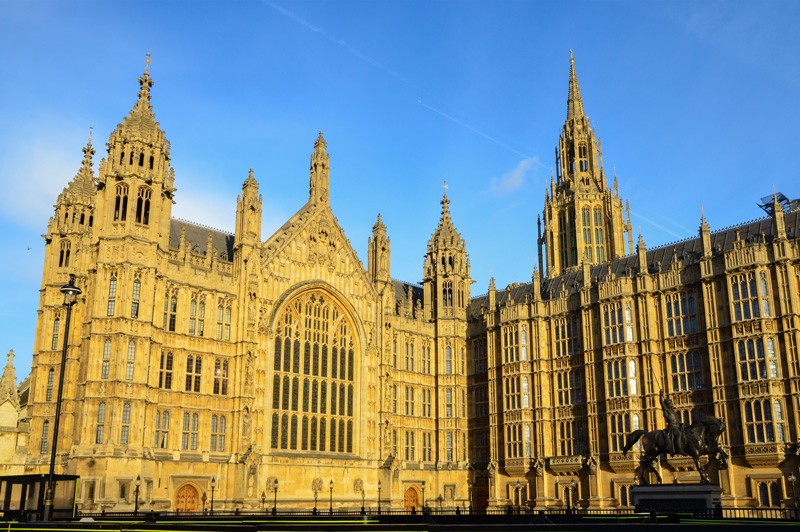
Brexit Officially Underway
On March 29, British Prime Minister Theresa May will trigger Article 50, the official plan for any country that wants to leave the European Union (EU). The British government will also enact a Great Repeal Bill, which will end the rule of EU law in Britain. Once Article 50 is triggered, the countdown to “Brexit” is officially on: all nations involved have two years from that point to negotiate the terms of the UK’s departure from the EU.
The British Supreme Court ruled in January that Brexit could not take place without the approval of Parliament. Thus, a “Brexit bill” was created and has just made its way through Parliament, paving the way for Prime Minister May to trigger Article 50 in a matter of days.
Because Article 50 has never been used before, no one really knows exactly how it will work. May has set up a new government department to oversee the Brexit transition. Nevertheless, the terms of Brexit will need to be approved by 27 national parliaments, which may or may not successfully happen in the two-year time frame allowed. If that happens, the negotiation period can continue beyond two years, but only if all 27 nations agree. Prime Minister May has said that she would rather Brexit happen with no deal at all, than with a bad one. In the meantime, the UK will continue to abide by EU treaties and laws, but it will not take part in any EU decision-making process.
Dig Deeper Using this article and other internet resources, work with a partner to construct an annotated timeline of the key events of Britain’s departure from the EU. Be sure to include the initial vote, the Supreme Court challenges, the date Article 50 will be triggered, and the date the two-year negotiations window will expire. Write a few sentences about each date and its significance to the departure process.
Senate to Undo Internet Privacy Rules?
How important is internet privacy to you? Are you comfortable with your internet service provider monitoring which sites you visit and then sharing that information with advertisers? Thanks to a resolution passed in the Senate last Thursday, this is exactly what may happen.
Under the Obama administration, the Federal Communications Commission (FCC) set strict internet privacy rules. Although the rules haven’t taken effect yet, they included requiring internet service providers (ISPs) to tell users what information is being collected from them, and how it will be used. Under these rules, an ISP would need to get your express consent before selling your browser history information to advertisers.
Senate Republicans and many major ISPs, however, argue that these rules aren’t fair. Other companies such as Facebook and Google are overseen by the Federal Trade Commission (FTC), which is far less “strict” than the FCC. They argue that all ISPs and data-collecting companies should be subject to the same privacy rules and regulations.
Unfortunately, what that means for consumers is that our usage information now can be used or sold for advertising purposes. According to Republicans, ISPs will still be monitored for privacy abuses by the FTC and state attorneys general. But Democrats argue that the FTC does not have the power to make rules regarding data security, and so the FCC’s rules are necessary to protect consumer privacy.
Now that the resolution has passed in the Senate, it travels to the House of Representatives. If it is approved in the House, it will move on to President Trump to be signed into law.
What Do You Think? Should internet service providers (ISPs) have the freedom to monitor your browser history and use that information to target advertising specifically to you . . . or to sell that information to another company? Why or why not? Remember to give reasons to support your point of view.
Terrorist Attack Shakes London
Last Thursday, a terrorist named Khalid Masood plowed a rented SUV into a crowd of pedestrians on the Westminster Bridge in London. He then crashed his vehicle into a fence and jumped out, stabbing one constable (police officer) before other officers shot and killed him. At least 40 people were injured, and five (including Masood) were killed in the attack.

The next day, the Islamic State (ISIS or ISIL) claimed responsibility for what had happened, calling Masood a soldier and a hero. Masood, a 52-year-old born in Britain, has a criminal record for assault, weapons possession, and violations of public order, but was not currently under investigation. His link to the Islamic State was unknown. However, the neighborhood in which he lived–Birminham–has been linked with radical groups in the past.
Casualties of the London attack include Police Constable Keith Palmer (48); Kurt Cochran, an American tourist from Utah; Aysha Frade (43), a British teacher; and Leslie Rhodes (75), a retired window cleaner from South London. The list of injured affects nations all over the globe, including 12 British citizens, three French children, two Romanians, four South Koreans, two Greeks, and one person each from Germany, Poland, Ireland, China, Italy, and the United States. Three police officers were also hurt, two of them seriously.
Though authorities indicated that Masood acted alone, they nevertheless raided six properties and arrested eight people in London and Birmingham.
Dig Deeper This is not the first attack the Islamic State has carried out by having one of its soldiers drive a vehicle into a crowded area. Using internet resources, write a short paragraph describing one of the similar attacks that have occurred somewhat recently in France and Germany, or the thwarted attack in Antwerp, Belgium that happened the same day as the London attack. Share your findings with the class.
Trump Moves Keystone Pipeline Full Speed Ahead
The Keystone XL pipeline has been a point of controversy for nearly ten years. The pipeline would run from Canada all the way to the Gulf Coast of the U.S., disrupting farmers and indigenous groups, and moving up to 830,000 barrels of crude oil per day. Environmental activists have also expressed concern because the type of oil the pipeline will carry will require additional processing, which in turn will emit more pollution. For these reasons, in 2015, former President Obama blocked the pipeline. However, on Friday morning, Trump reversed Obama’s decision and gave TransCanada, the company building the pipeline, the full go-ahead to begin construction on the project, which will cost $8 billion and span 1,200 miles across the U.S.
President Trump has stated that this decision is the first of many planned energy and infrastructure changes which will create jobs and reduce dependency on foreign oil. However, most of the construction jobs the project will bring will be temporary. Once the pipeline is completed, the State Department estimates that it will only employ about 35 people. Furthermore, Trump initially stated that U.S. steel would be used to construct the pipeline. Earlier this month, however, the White House declared that they will waive this requirement for the Keystone XL.
TransCanada had filed an arbitration claim for $15 billion under NAFTA, and a second lawsuit alleging that Obama’s decision was unconstitutional. Because of Trump’s decision, the company will now drop both suits.
Construction won’t begin immediately. The company still needs a permit from Nebraska’s Public Service Commission. Environmental and indigenous groups have already pledged to fight the pipeline’s construction.
What Do You Think? Do you support the construction of the Keystone XL pipeline? Why or why not? Using this article and other online resources, come up with at least three reasons to support your point of view.
